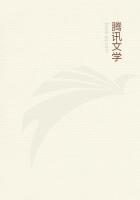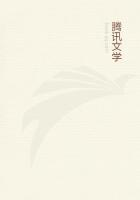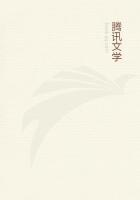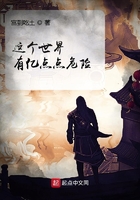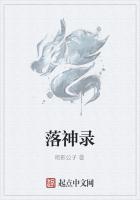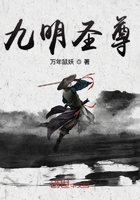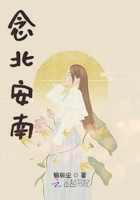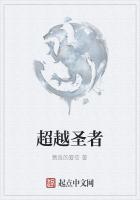And now the curtain is down for a few hours,and the actors in this novel drama are plunged in dewy sleep.Perhaps we should except Nyleptha,whom the reader may,if poetically inclined,imagine lying in her bed of state encompassed by her maidens,tiring women,guards,and all the other people and appurtenances that surround a throne,and yet not able to slumber for thinking of the strangers who had visited a country where no such strangers had ever come before,and wondering,as she lay awake,who they were and what their past has been,and if she was ugly compared to the women of their native place.I,however,not being poetically inclined,will take advantage of the lull to give some account of the people among whom we found ourselves,compiled,needless to state,from information which we subsequently collected.
The name of this country,to begin at the beginning,is Zu-Vendis,from Zu,'yellow',and Vendis,'place or country'.Why it is called the Yellow Country I have never been able to ascertain accurately,nor do the inhabitants themselves know.Three reasons are,however,given,each of which would suffice to account for it.The first is that the name owes its origin to the great quantity of gold that is found in the land.Indeed,in this respect Zu-Vendis is a veritable Eldorado,the precious metal being extraordinarily plentiful.At present it is collected from purely alluvial diggings,which we subsequently inspected,and which are situated within a day's journey from Milosis,being mostly found in pockets and in nuggets weighing from an ounce up to six or seven pounds in weight.But other diggings of a similar nature are known to exist,and I have besides seen great veins of gold-bearing quartz.In Zu-Vendis gold is a much commoner metal than silver,and thus it has curiously enough come to pass that silver is the legal tender of the country.
The second reason given is,that at certain times of the year the native grasses of the country,which are very sweet and good,turn as yellow as ripe corn;and the third arises from a tradition that the people were originally yellow skinned,but grew white after living for many generations upon these high lands.Zu-Vendis is a country about the size of France,is,roughly speaking,oval in shape;and on every side cut off from the surrounding territory by illimitable forests of impenetrable thorn,beyond which are said to be hundreds of miles of morasses,deserts,and great mountains.It is,in short,a huge,high tableland rising up in the centre of the dark continent,much as in southern Africa flat-topped mountains rise from the level of the surrounding veldt.Milosis itself lies,according to my aneroid,at a level of about nine thousand feet above the sea,but most of the land is even higher,the greatest elevation of the open country being,I believe,about eleven thousand feet.As a consequence the climate is,comparatively speaking,a cold one,being very similar to that of southern England,only brighter and not so rainy.
The land is,however,exceedingly fertile,and grows all cereals and temperate fruits and timber to perfection;and in the lower-lying parts even produces a hardy variety of sugar-cane.Coal is found in great abundance,and in many places crops out from the surface;and so is pure marble,both black and white.The same may be said of almost every metal except silver,which is scarce,and only to be obtained from a range of mountains in the north.
Zu-Vendis comprises in her boundaries a great variety of scenery,including two ranges of snow-clad mountains,one on the western boundary beyond the impenetrable belt of thorn forest,and the other piercing the country from north to south,and passing at a distance of about eighty miles from Milosis,from which town its higher peaks are distinctly visible.This range forms the chief watershed of the land.There are also three large lakes --the biggest,namely that whereon we emerged,and which is named Milosis after the city,covering some two hundred square miles of country --and numerous small ones,some of them salt.
The population of this favoured land is,comparatively speaking,dense,numbering at a rough estimate from ten to twelve millions.
It is almost purely agricultural in its habits,and divided into great classes as in civilized countries.There is a territorial nobility,a considerable middle class,formed principally of merchants,officers of the army,etc.;but the great bulk of the people are well-to-do peasants who live upon the lands of the lords,from whom they hold under a species of feudal tenure.
The best bred people in the country are,as I think I have said,pure whites with a somewhat southern cast of countenance;but the common herd are much darker,though they do not show any negro or other African characteristics.As to their descent I can give no certain information.Their written records,which extend back for about a thousand years,give no hint of it.
One very ancient chronicler does indeed,in alluding to some old tradition that existed in his day,talk of it as having probably originally 'come down with the people from the coast',but that may mean little or nothing.In short,the origin of the Zu-Vendi is lost in the mists of time.Whence they came or of what race they are no man knows.Their architecture and some of their sculptures suggest an Egyptian or possibly an Assyrian origin;but it is well known that their present remarkable style of building has only sprung up within the last eight hundred years,and they certainly retain no traces of Egyptian theology or customs.
Again,their appearance and some of their habits are rather Jewish;but here again it seems hardly conceivable that they should have utterly lost all traces of the Jewish religion.Still,for aught I know,they may be one of the lost ten tribes whom people are so fond of discovering all over the world,or they may not.
I do not know,and so can only describe them as I find them,and leave wiser heads than mine to make what they can out of it,if indeed this account should ever be read at all,which is exceedingly doubtful.
And now after I have said all this,I am,after all,going to hazard a theory of my own,though it is only a very little one,as the young lady said in mitigation of her baby.This theory is founded on a legend which I have heard among the Arabs on the east coast,which is to the effect that 'more than two thousand years ago'there were troubles in the country which was known as Babylonia,and that thereon a vast horde of Persians came down to Bushire,where they took ship and were driven by the north-east monsoon to the east coast of Africa,where,according to the legend,'the sun and fire worshippers'fell into conflict with the belt of Arab settlers who even then were settled on the east coast,and finally broke their way through them,and,vanishing into the interior,were no more seen.Now,I ask,is it not at least possible that the Zu-Vendi people are the descendants of these 'sun and fire worshippers'who broke through the Arabs and vanished?As a matter of fact,there is a good deal in their characters and customs that tallies with the somewhat vague ideas that I have of Persians.Of course we have no books of reference here,but Sir Henry says that if his memory does not fail him,there was a tremendous revolt in Babylon about 500BC,whereon a vast multitude were expelled from the city.
Anyhow,it is a well-established fact that there have been many separate emigrations of Persians from the Persian Gulf to the east coast of Africa up to as lately as seven hundred years ago.
There are Persian tombs at Kilwa,on the east coast,still in good repair,which bear dates showing them to be just seven hundred years old.{Endnote 12}
In addition to being an agricultural people,the Zu-Vendi are,oddly enough,excessively warlike,and as they cannot from the exigencies of their position make war upon other nations,they fight among each other like the famed Kilkenny cats,with the happy result that the population never outgrows the power of the country to support it.This habit of theirs is largely fostered by the political condition of the country.The monarchy is nominally an absolute one,save in so far as it is tempered by the power of the priests and the informal council of the great lords;but,as in many other institutions,the king's writ does not run unquestioned throughout the length and breadth of the land.In short,the whole system is a purely feudal one (though absolute serfdom or slavery is unknown),all the great lords holding nominally from the throne,but a number of them being practically independent,having the power of life and death,waging war against and ****** peace with their neighbours as the whim or their interests lead them,and even on occasion rising in open rebellion against their royal master or mistress,and,safely shut up in their castles and fenced cities,as far from the seat of government,successfully defying them for years.
Zu-Vendis has had its king-makers as well as England,a fact that will be well appreciated when I state that eight different dynasties have sat upon the throne in the last one thousand years,every one of which took its rise from some noble family that succeeded in grasping the purple after a sanguinary struggle.
At the date of our arrival in the country things were a little better than they had been for some centuries,the last king,the father of Nyleptha and Sorais,having been an exceptionally able and vigorous ruler,and,as a consequence,he kept down the power of the priests and nobles.On his death,two years before we reached Zu-Vendis,the twin sisters,his children,were,following an ancient precedent,called to the throne,since an attempt to exclude either would instantly have provoked a sanguinary civil war;but it was generally felt in the country that this measure was a most unsatisfactory one,and could hardly be expected to be permanent.Indeed,as it was,the various intrigues that were set on foot by ambitious nobles to obtain the hand of one or other of the queens in marriage had disquieted the country,and the general opinion was that there would be bloodshed before long.
I will now pass on to the question of the Zu-Vendi religion,which is nothing more or less than sun-worship of a pronounced and highly developed character.Around this sun-worship is grouped the entire social system of the Zu-Vendi.It sends its roots through every institution and custom of the land.From the cradle to the grave the Zu-Vendi follows the sun in every sense of the saying.As an infant he is solemnly held up in its light and dedicated to 'the symbol of good,the expression of power,and the hope of Eternity',the ceremony answering to our baptism.
Whilst still a tiny child,his parents point out the glorious orb as the presence of a visible and beneficent god,and he worships it at its up-rising and down-setting.Then when still quite small,he goes,holding fast to the pendent end of his mother's 'kaf'(toga),up to the temple of the Sun of the nearest city,and there,when at midday the bright beams strike down upon the golden central altar and beat back the fire that burns thereon,he hears the white-robed priests raise their solemn chant of praise and sees the people fall down to adore,and then,amidst the blowing of the golden trumpets,watched the sacrifice thrown into the fiery furnace beneath the altar.Here he comes again to be declared 'a man'by the priests,and consecrated to war and to good works;here before the solemn altar he leads his bride;and here too,if differences shall unhappily arise,he divorces her.
And so on,down life's long pathway till the last mile is travelled,and he comes again armed indeed,and with dignity,but no longer a man.Here they bear him dead and lay his bier upon the falling brazen doors before the eastern altar,and when the last ray from the setting sun falls upon his white face the bolts are drawn and he vanishes into the raging furnace beneath and is ended.
The priests of the Sun do not marry,but are recruited by young men specially devoted to the work by their parents and supported by the State.The nomination to the higher offices of the priesthood lies with the Crown,but once appointed the nominees cannot be dispossessed,and it is scarcely too much to say that they really rule the land.To begin with,they are a united body sworn to obedience and secrecy,so that an order issued by the High Priest at Milosis will be instantly and unhesitatingly acted upon by the resident priest of a little country town three or four hundred miles off.They are the judges of the land,criminal and civil,an appeal lying only to the lord paramount of the district,and from him to the king;and they have,of course,practically unlimited jurisdiction over religious and moral offences,together with a right of excommunication,which,as in the faiths of more highly civilized lands,is a very effective weapon.Indeed,their rights and powers are almost unlimited,but I may as well state here that the priests of the Sun are wise in their generation,and do not push things too far.It is but very seldom that they go to extremes against anybody,being more inclined to exercise the prerogative of mercy than run the risk of exasperating the powerful and vigorous-minded people on whose neck they have set their yoke,lest it should rise and break it off altogether.
Another source of the power of the priests is their practical monopoly of learning,and their very considerable astronomical knowledge,which enables them to keep a hold on the popular mind by predicting eclipses and even comets.In Zu-Vendis only a few of the upper classes can read and write,but nearly all the priests have this knowledge,and are therefore looked upon as learned men.
The law of the country is,on the whole,mild and just,but differs in several respects from our civilized law.For instance,the law of England is much more severe upon offences against property than against the person,as becomes a people whose ruling passion is money.A man may half kick his wife to death or inflict horrible sufferings upon his children at a much cheaper rate of punishment than he can compound for the theft of a pair of old boots.
In Zu-Vendis this is not so,for there they rightly or wrongly look upon the person as of more consequence than goods and chattels,and not,as in England,as a sort of necessary appendage to the latter.For murder the punishment is death,for treason death,for defrauding the orphan and the widow,for sacrilege,and for attempting to quit the country (which is looked on as a sacrilege)death.In each case the method of execution is the same,and a rather awful one.The culprit is thrown alive into the fiery furnace beneath one of the altars to the Sun.For all other offences,including the offence of idleness,the punishment is forced labour upon the vast national buildings which are always going on in some part of the country,with or without periodical floggings,according to the crime.
The social system of the Zu-Vendi allows considerable liberty to the individual,provided he does not offend against the laws and customs of the country.They are polygamous in theory,though most of them have only one wife on account of the expense.By law a man is bound to provide a separate establishment for each wife.The first wife also is the legal wife,and her children are said to be 'of the house of the Father'.The children of the other wives are of the houses of their respective mothers.
This does not,however,imply any slur upon either mother or children.Again,a first wife can,on entering into the married state,make a bargain that her husband shall marry no other wife.
This,however,is very rarely done,as the women are the great upholders of polygamy,which not only provides for their surplus numbers but gives greater importance to the first wife,who is thus practically the head of several households.Marriage is looked upon as primarily a civil contract,and,subject to certain conditions and to a proper provision for children,is dissoluble at the will of both contracting parties,the divorce,or 'unloosing',being formally and ceremoniously accomplished by going through certain portions of the marriage ceremony backwards.
The Zu-Vendi are on the whole a very kindly,pleasant,and light-hearted people.They are not great traders and care little about money,only working to earn enough to support themselves in that class of life in which they were born.They are exceedingly conservative,and look with disfavour upon changes.Their legal tender is silver,cut into little squares of different weights;gold is the baser coin,and is about of the same value as our silver.
It is,however,much prized for its beauty,and largely used for ornaments and decorative purposes.Most of the trade,however,is carried on by means of sale and barter,payment being made in kind.Agriculture is the great business of the country,and is really well understood and carried out,most of the available acreage being under cultivation.Great attention is also given to the breeding of cattle and horses,the latter being unsurpassed by any I have ever seen either in Europe or Africa.
The land belongs theoretically to the Crown,and under the Crown to the great lords,who again divide it among smaller lords,and so on down to the little peasant farmer who works his forty 'reestu'(acres)on a system of half-profits with his immediate lord.In fact the whole system is,as I have said,distinctly feudal,and it interested us much to meet with such an old friend far in the unknown heart of Africa.
The taxes are very heavy.The State takes a third of a man's total earnings,and the priesthood about five per cent on the remainder.But on the other hand,if a man through any cause falls into bona fide misfortune the State supports him in the position of life to which he belongs.If he is idle,however,he is sent to work on the Government undertakings,and the State looks after his wives and children.The State also makes all the roads and builds all town houses,about which great care is shown,letting them out to families at a small rent.It also keeps up a standing army of about twenty thousand men,and provides watchmen,etc.In return for their five per cent the priests attend to the service of the temples,carry out all religious ceremonies,and keep schools,where they teach whatever they think desirable,which is not very much.Some of the temples also possess private property,but priests as individuals cannot hold property.
And now comes a question which I find some difficulty in answering.
Are the Zu-Vendi a civilized or barbarous people?Sometimes I think the one,sometimes the other.In some branches of art they have attained the very highest proficiency.Take for instance their buildings and their statuary.I do not think that the latter can be equalled either in beauty or imaginative power anywhere in the world,and as for the former it may have been rivalled in ancient Egypt,but I am sure that it has never been since.But,on the other hand,they are totally ignorant of many other arts.Till Sir Henry,who happened to know something about it,showed them how to do it by mixing silica and lime,they could not make a piece of glass,and their crockery is rather primitive.A water-clock is their nearest approach to a watch;indeed,ours delighted them exceedingly.They know nothing about steam,electricity,or gunpowder,and mercifully for themselves nothing about printing or the penny post.Thus they are spared many evils,for of a truth our age has learnt the wisdom of the old-world saying,'He who increaseth knowledge,increaseth sorrow.'
As regards their religion,it is a natural one for imaginative people who know no better,and might therefore be expected to turn to the sun and worship him as the all-Father,but it cannot justly be called elevating or spiritual.It is true that they do sometimes speak of the sun as the 'garment of the Spirit',but it is a vague term,and what they really adore is the fiery orb himself.They also call him the 'hope of eternity',but here again the meaning is vague,and I doubt if the phrase conveys any very clear impression to their minds.Some of them do indeed believe in a future life for the good --I know Nyleptha does firmly --but it is a private faith arising from the promptings of the spirit,not an essential of their creed.So on the whole I cannot say that I consider this sun-worship as a religion indicative of a civilized people,however magnificent and imposing its ritual,or however moral and high-sounding the maxims of its priests,many of whom,I am sure,have their own opinions on the whole subject;though of course they have nothing but praise for a system which provides them with so many of the good things of this world.
There are now only two more matters to which I need allude --namely,the language and the system of calligraphy.As for the former,it is soft-sounding,and very rich and flexible.
Sir Henry says that it sounds something like modern Greek,but of course it has no connection with it.It is easy to acquire,being ****** in its construction,and a peculiar quality about it is its euphony,and the way in which the sound of the words adapts itself to the meaning to be expressed.Long before we mastered the language,we could frequently make out what was meant by the ring of the sentence.It is on this account that the language lends itself so well to poetical declamation,of which these remarkable people are very fond.The Zu-Vendi alphabet seems,Sir henry says,to be derived,like every other known system of letters,from a Phoenician source,and therefore more remotely still from the ancient Egyptian hieratic writing.
Whether this is a fact I cannot say,not being learned in such matters.All I know about it is that their alphabet consists of twenty-two characters,of which a few,notably B,E,and O,are not very unlike our own.The whole affair is,however,clumsy and puzzling.{Endnote 13}But as the people of Zu-Vendi are not given to the writing of novels,or of anything except business documents and records of the briefest character,it answers their purpose well enough.

